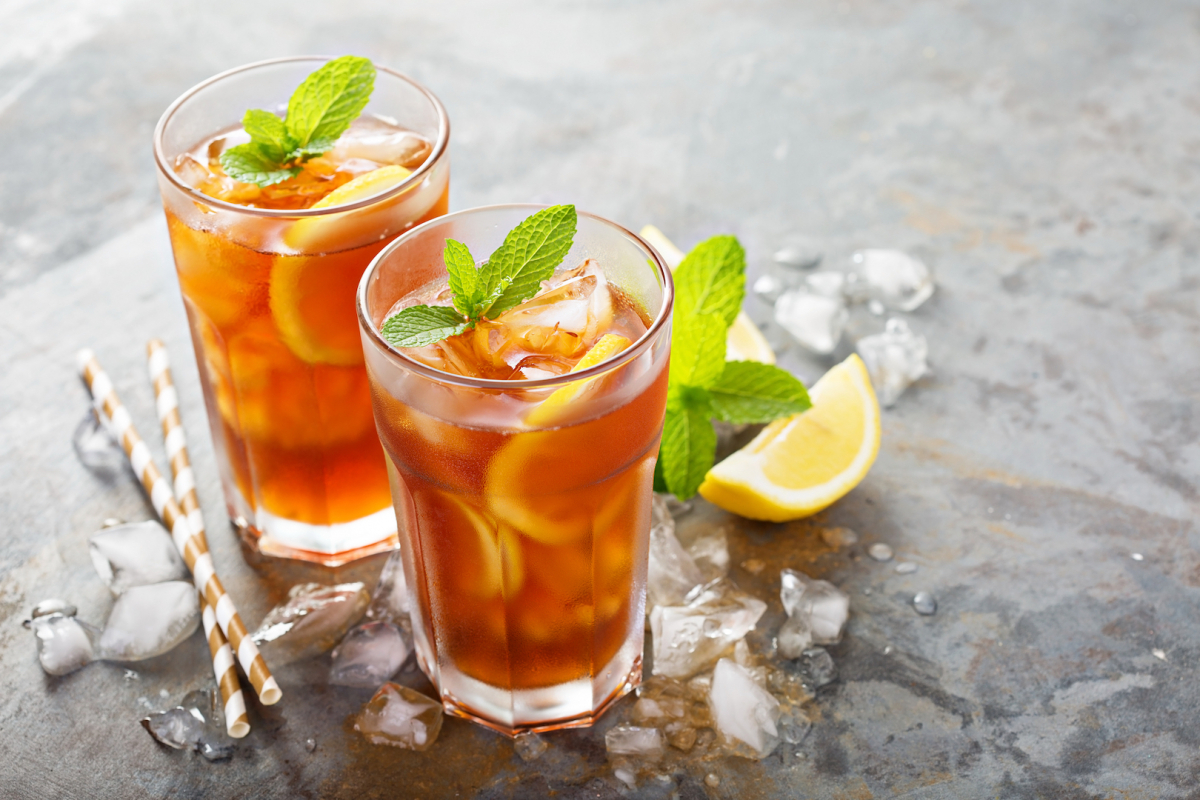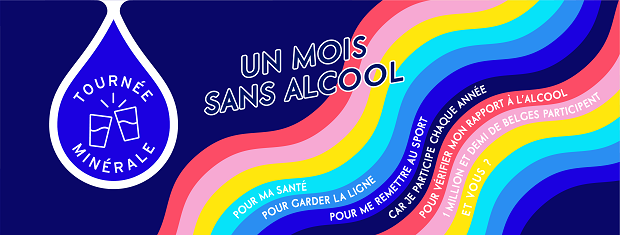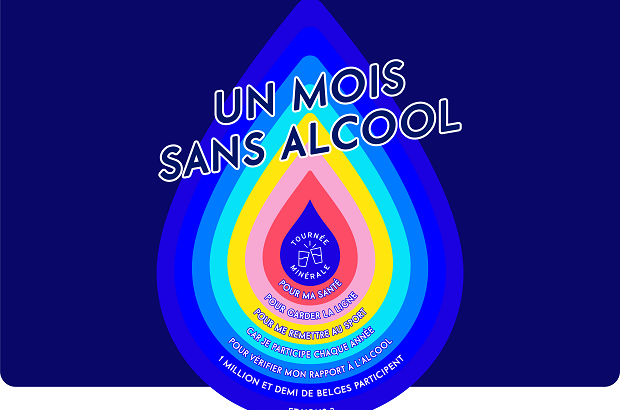- Daily & Weekly newsletters
- Buy & download The Bulletin
- Comment on our articles
Alcohol-free campaign Tournée Minérale kicks off on 1 February
Belgium’s month-long sobriety challenge Tournée Minérale launches on 1 February, inviting citizens to take a temporary break from alcohol.
While some countries around the world are saying goodbye to Dry January, others like Belgium reserve the second and shortest month of the year for a period of abstinence.
First initiated by the Cancer Foundation in 2017, the nationwide campaign is now run by nonprofit Univers santé.
It underlines the many benefits of taking a pause from alcohol, promoting itself as a community that supports individual participants via its website, national TV and radio ads and on social media.

In addition to practical information, incentive competitions and 0% alcohol recipes, it also offers the following reassuring advice. “Don't panic, the Joker card is back again this year for birthdays, special occasions or for an unexpected event.”
For the 8th edition of the challenge, it’s also highlighting the diversity of reasons for taking part, whether they be physical, mental, social well-being, or out of consideration for loved ones.
Public health benefits
Tournée Minérale says the annual collective effort to reduce alcohol consumption has a concrete impact on public health. Participants reduce their consumption by 20% on average in the six months following the campaign.
With people often unsure if their drinking habits are problematic, it suggests gauging consumption on “units (or standard glasses) of alcohol”. One unit corresponds to 10grams of ethanol, which is the quantity of alcohol found in 10cl of 12° wine, a 25cl 5°beer or 3cl of strong 40° alcohol.
But the reality is that many drinks on the market fall outside of these standards, making it complicated to correctly evaluate consumption. Belgium’s Superior Health Council advises consumers not to exceed 10 units of alcohol per week, go at least two days without drinking, and to not exceed four units per occasion.
That’s why Univers santé has also campaigned for clear labelling of alcoholic beverages and calls for consumers to be aided to make informed choices. “The EU actually imposes this on all food products – at least regarding the nutritional content and composition of the product. All except one: alcoholic beverages.”
Sobriety a growing trend among youngsters
An evaluation of last year’s campaign revealed that while young people were less familiar with the event, a considerable number of them joined in.
This echoes a trend among youth, such as the #sobercurious cultural movement that is particularly popular among social media influencers.
Univers Santé, already active in promoting health among students, has observed improvements in alcohol consumption.
“For 22 years, with the support of the university, we have been carrying out various prevention actions for UCLouvain students. Our flagship campaign ‘Guindaille 2.0’ also highlights responsible behaviour and ‘good reflexes’ for more thoughtful and less risky partying.”
But the non-profit points out that young people in Belgium remain exposed to risks linked to alcohol consumption; it’s the primary cause of preventable deaths among 15 to 29-year-olds.

Call for alcohol age limit to be raised to 18
While Univers Santé blames the country’s lack of alcohol legislation for youngsters’ risky behaviour, Flemish cancer association Kom op tegen kanker wants the age limit for alcohol consumption to be raised to 18.
Alcohol consumption is linked to seven types of cancer, it says on the eve of the alcohol-free month. Belgium was one of the only countries in the European Union where young people could legally drink alcohol from the age of 16, it adds.
According to its research, around 3,200 Belgians were treated for a cancer related to alcohol consumption in 2020.
Kom op tegen kanker is hoping the issue will be on the agenda during the next elections. The recently approved Interfederal Alcohol Plan 2023 - 2025 is inadequate, it says. “By focusing on harmful and excessive alcohol consumption, the suggestion is that there is also 'harmless' consumption.”
It adds: "Scientifically, there is no safe lower limit for alcohol consumption. Alcohol has a very significant impact on short and long-term health. And young people in particular are even more vulnerable to its negative effects."
The increase in the age limit should also be accompanied by better regulation and better enforcement of the law, it argues.
Belgium’s alcohol consumption in figures:
- 1 in 7 Belgians show signs of overconsumption of alcohol
- 1 in 10 Belgians consume alcohol every day
- Almost 1 in 2 Belgians experience binge drinking during the year
- 2 X too much: Belgians drink on average double the recommended alcoholic intake
- 10%: Harmful use of alcohol causes 10% of deaths in Belgium (around 9,300 per year)
- 2nd: Alcohol is the second cause of preventable death, just behind tobacco consumption
Photo: ©Tournée Minérale


















